Citroen C4 vs Ford Focus - Differences and prices compared
Compare performance (156 HP vs 280 HP), boot space and price (20600 £ vs 27500 £ ) at a glance. Find out which car is the better choice for you – Citroen C4 or Ford Focus?
Costs and Efficiency:
Price and efficiency are key factors when choosing a car – and this is often where the real differences emerge.
Citroen C4 has a evident advantage in terms of price – it starts at 20600 £ , while the Ford Focus costs 27500 £ . That’s a price difference of around 6952 £.
Fuel consumption also shows a difference: Citroen C4 manages with 4.70 L and is therefore hardly perceptible more efficient than the Ford Focus with 4.90 L. The difference is about 0.20 L per 100 km.
Engine and Performance:
Power, torque and acceleration are the classic benchmarks for car enthusiasts – and here, some clear differences start to show.
When it comes to engine power, the Ford Focus has a decisively edge – offering 280 HP compared to 156 HP. That’s roughly 124 HP more horsepower.
In acceleration from 0 to 100 km/h, the Ford Focus is decisively quicker – completing the sprint in 5.70 s, while the Citroen C4 takes 8 s. That’s about 2.30 s faster.
In terms of top speed, the Ford Focus performs noticeable better – reaching 250 km/h, while the Citroen C4 tops out at 150 km/h. The difference is around 100 km/h.
There’s also a difference in torque: Ford Focus pulls evident stronger with 420 Nm compared to 270 Nm. That’s about 150 Nm difference.
Space and Everyday Use:
Beyond pure performance, interior space and usability matter most in daily life. This is where you see which car is more practical and versatile.
Both vehicles offer seating for 5 people.
In curb weight, Ford Focus is hardly perceptible lighter – 1330 kg compared to 1403 kg. The difference is around 73 kg.
In terms of boot space, the Citroen C4 offers noticeable more room – 510 L compared to 392 L. That’s a difference of about 118 L.
In maximum load capacity, the Citroen C4 performs barely noticeable better – up to 1360 L, which is about 6 L more than the Ford Focus.
When it comes to payload, Ford Focus evident takes the win – 560 kg compared to 406 kg. That’s a difference of about 154 kg.
Who wins the race in the data check?
The Ford Focus holds a decisive overall lead in the objective data comparison.
This result only shows which model scores more points on paper – not which of the two cars feels right for you.
Costs and Consumption
View detailed analysis
Engine and Performance
View detailed analysis
Dimensions and Body
View detailed analysis
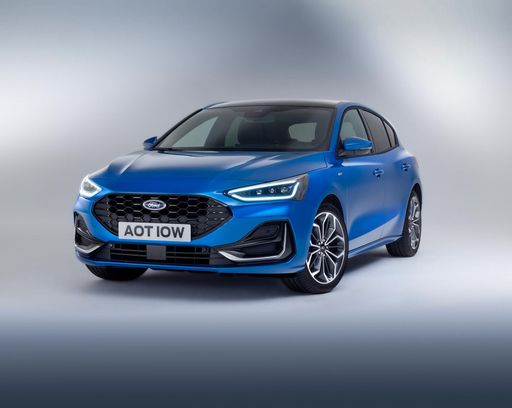
Ford Focus
Citroen C4
Citroën C4 wears its French eccentricity with confidence, pairing bold, sculpted styling with a supremely comfortable ride that turns mundane commutes into a gentler affair. If you value relaxed comfort, clever practicality and a car with personality rather than pretence, the C4 is a charming, sensible choice — and it won't make you miss the usual hot‑hatch theatrics.
details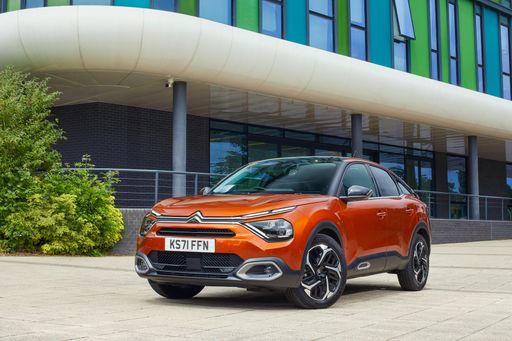
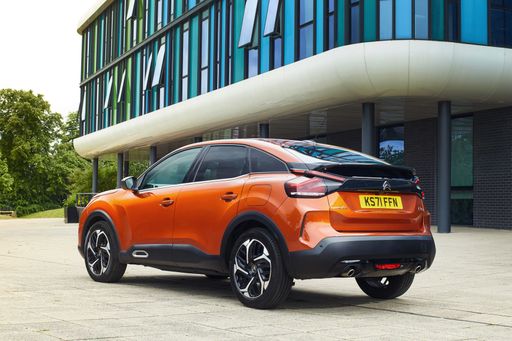
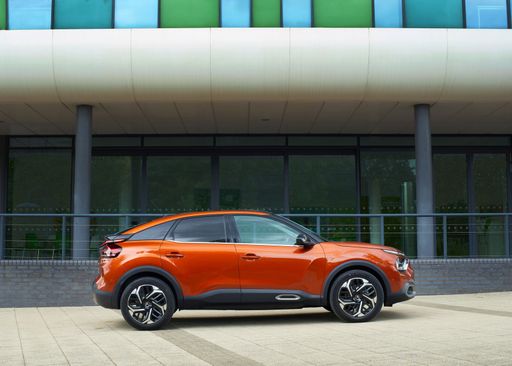
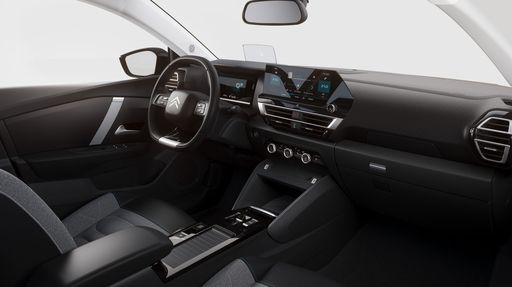
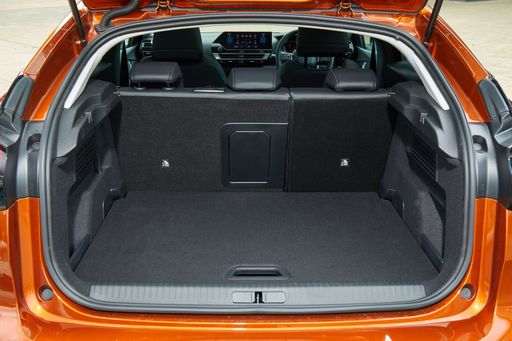
Ford Focus
The Ford Focus remains a clever all‑rounder that balances sharp handling with everyday comfort, making it a strong choice whether your commute is city streets or country lanes. Its practical cabin and sensible running costs mean you’ll spend more time enjoying the drive and less time worrying about ownership, with a playful streak underfoot that keeps things interesting.
details
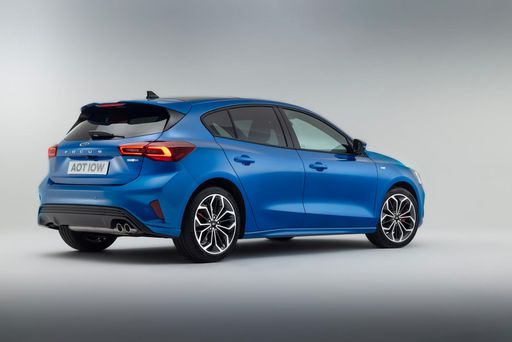
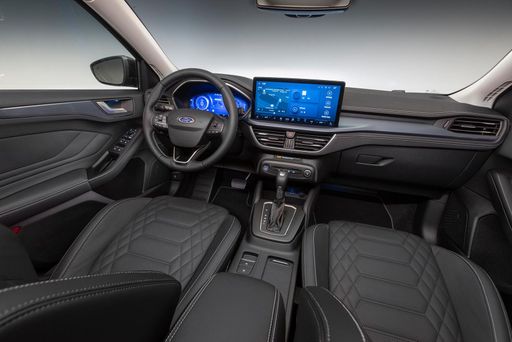
Costs and Consumption |
|
|---|---|
|
Price
20600 - 32000 £
|
Price
27500 - 42700 £
|
|
Consumption L/100km
4.7 - 4.8 L
|
Consumption L/100km
4.9 - 8 L
|
|
Consumption kWh/100km
14.5 - 15.3 kWh
|
Consumption kWh/100km
-
|
|
Electric Range
354 - 427 km
|
Electric Range
-
|
|
Battery Capacity
46 - 51 kWh
|
Battery Capacity
-
|
|
co2
0 - 108 g/km
|
co2
117 - 183 g/km
|
|
Fuel tank capacity
-
|
Fuel tank capacity
52 L
|
Dimensions and Body |
|
|---|---|
|
Body Type
SUV
|
Body Type
Hatchback
|
|
Seats
5
|
Seats
5
|
|
Doors
4 - 5
|
Doors
5
|
|
Curb weight
1403 - 1659 kg
|
Curb weight
1330 - 1529 kg
|
|
Trunk capacity
380 - 510 L
|
Trunk capacity
392 L
|
|
Length
4350 - 4580 mm
|
Length
4382 - 4397 mm
|
|
Width
1800 - 1834 mm
|
Width
1825 - 1844 mm
|
|
Height
1520 - 1525 mm
|
Height
1438 - 1482 mm
|
|
Max trunk capacity
1250 - 1360 L
|
Max trunk capacity
1354 L
|
|
Payload
379 - 406 kg
|
Payload
495 - 560 kg
|
Engine and Performance |
|
|---|---|
|
Engine Type
Electric, Petrol MHEV
|
Engine Type
Petrol MHEV, Diesel, Petrol
|
|
Transmission
Automatic
|
Transmission
Manuel, Automatic
|
|
Transmission Detail
Reduction Gearbox, Dual-Clutch Automatic
|
Transmission Detail
Manual Gearbox, Dual-Clutch Automatic, Automatic Gearbox
|
|
Drive Type
Front-Wheel Drive
|
Drive Type
Front-Wheel Drive
|
|
Power HP
110 - 156 HP
|
Power HP
115 - 280 HP
|
|
Acceleration 0-100km/h
8 - 10.8 s
|
Acceleration 0-100km/h
5.7 - 11.8 s
|
|
Max Speed
150 km/h
|
Max Speed
186 - 250 km/h
|
|
Torque
205 - 270 Nm
|
Torque
170 - 420 Nm
|
|
Number of Cylinders
3
|
Number of Cylinders
3 - 4
|
|
Power kW
81 - 115 kW
|
Power kW
85 - 206 kW
|
|
Engine capacity
1199 cm3
|
Engine capacity
999 - 2261 cm3
|
General |
|
|---|---|
|
Model Year
2025
|
Model Year
2022 - 2024
|
|
CO2 Efficiency Class
A, C
|
CO2 Efficiency Class
D, G
|
|
Brand
Citroen
|
Brand
Ford
|
What drivetrain options does the Citroen C4 have?
The Citroen C4 is offered with Front-Wheel Drive.




